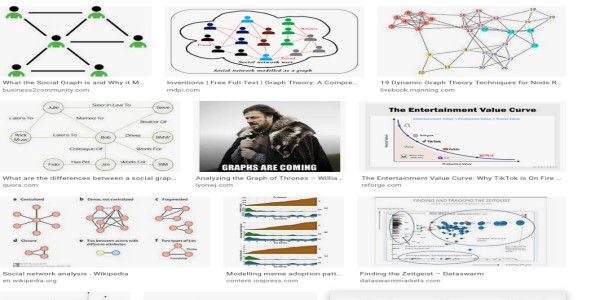Can we have INTERESTS, instead of "SOCIALIZATION"?
Why is it so hard to choose between online INTERESTS and online “friends”?

A few months ago, Eugene Weis shared some thoughts on [how to build the “second era of social media in the West”. I find that post important because it tackles a problem that has really, really bugged me since when I first joined social media, and still does.
I refer to what Weis calls “approximating an interest graph using a social graph”, and describes in this way:
- most social media apps serve up an infinite… feed populated by content that is assumed to be interesting - that is an “interest graph” - because it is posted by the accounts the user follows - that is her social graph
- but this conflation and merging of “social connections” with “interests” has “negative network effects that kick in at scale”
- those negative effects are the obvious fact that we all are “rarely interested in everything from any single person you follow”, and “don’t always find the people we know to be that entertaining”
Boy, do I feel that pain
In the past years, I have been forced to unfollow many people that I should have followed for my work, because they lead lots of valid, very interesting projects. But they couldn’t help drowning those news under a non-stop stream of stuff I couldn’t care less, from pictures of their pets to what they had had for dinner.
And no, in case you are wondering, they cannot be bothered to e.g. keep the pets and cocktails on their personal profile, while building a page or group just for work, or even just participating into existing groups on the same topics. Or to at least tag properly every post they make.
Is this really a “western” problem?
Or, more exactly a western-ONLY problem? Wei writes that “this is a problem unique to Western social media design. In conflating the social graph and the interest graph, we’ve introduced a content matching problem that needn’t exist."
Do YOU agree?
Who writes this, why, and how to help
I am Marco Fioretti, tech writer and aspiring polymath doing human-digital research and popularization.
I do it because YOUR civil rights and the quality of YOUR life depend every year more on how software is used AROUND you.
To this end, I have already shared more than a million words on this blog, without any paywall or user tracking, and am sharing the next million through a newsletter, also without any paywall.
The more direct support I get, the more I can continue to inform for free parents, teachers, decision makers, and everybody else who should know more stuff like this. You can support me with paid subscriptions to my newsletter, donations via PayPal (mfioretti@nexaima.net) or LiberaPay, or in any of the other ways listed here.THANKS for your support!